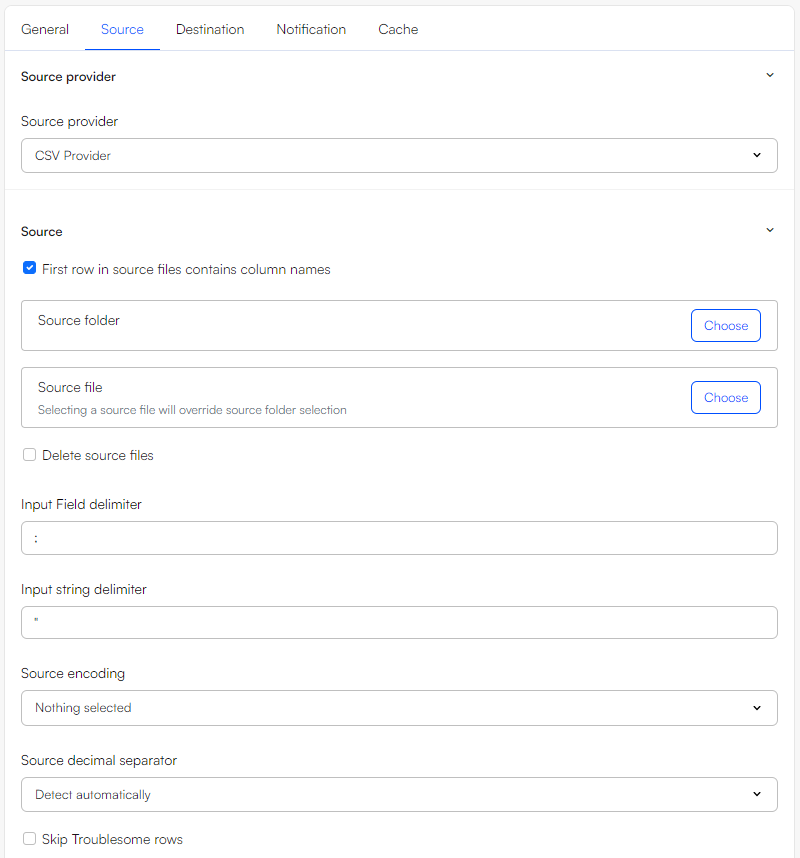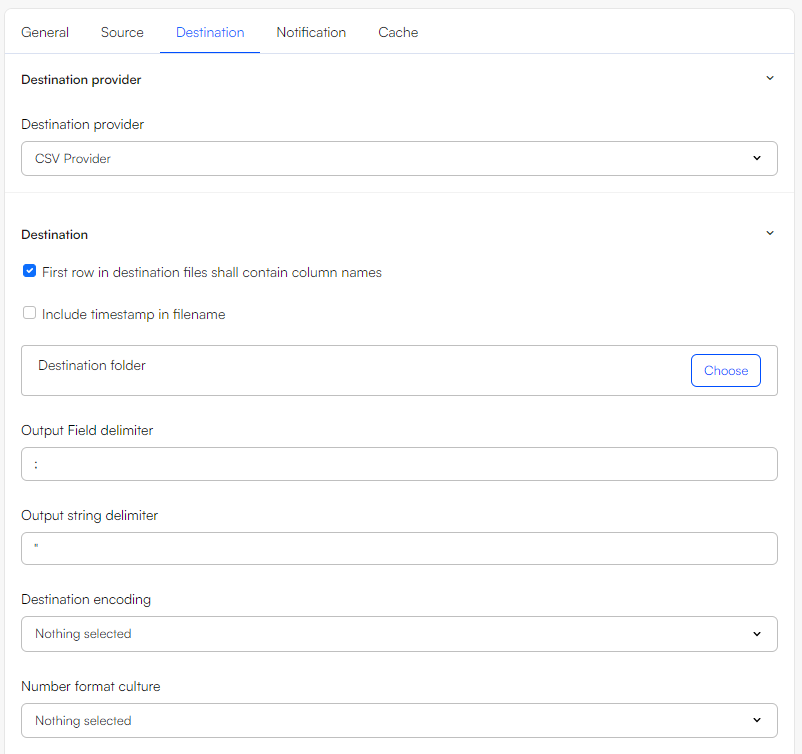CSV Provider
Import and export data in CSV format
The CSV Provider is used to read and write data from and to CSV files located in a particular file or folder.
Used as source
When the CSV provider is used as a source provider - i.e. to import data from a CSV file, the following settings are available:

- Source folder - select a folder from where to import data from multiple CSV files. Imports from every file in the selected folder, provided that each one of them corresponds to 1 (and only 1) table.
- Source file - specify a single CSV file to import data from - disregards the source folder selection when set
- Delete source files - check to delete source file(s) on successful run
Besides source selection, you can manually specify the following:
- Input Field delimiter - typically ";" or ","
- Input string delimiter - typically single or double quotes '/"
- Source encoding - defaults to UTF8
- Source decimal separator - dot/comma or alternatively set this setting to either Detect automatically (based on last non-numeric character in the source numbers) or use System culture (of the IIS).
When Skip troublesome rows is checked, the CSV provider automatically ignores rows with syntax errors that would otherwise cause the activity to fail.
Caution
As always, you should adhere to characters aA-zZ and 0-9 for column naming in DynamicWeb. Any use of special characters and/or leading/trailing spaces may lead to unwanted results.
Used as destination
When the CSV provider is used as a destination provider - i.e. to export data to a CSV file, the following settings are available:

- Destination folder - specify where to store the created file
- First row in destination files shall contain column names - check to export column names as the first line in the output file
- Include timestamp in filename - does what it says ... useful if you wish to avoid overwriting existing CSV-files
- Output Field delimiter - typically ";" or "," but if you wish to separate values with some weird character, feel fre to do so. Delimiter characters are always escaped with backslash (\)
- Output string delimiter - typically single or double quotes '/"
- Destination encoding - defaults to UTF8
- Number format culture - Defaults to the number format culture of the IIS. Other options are from your Ecommerce languages